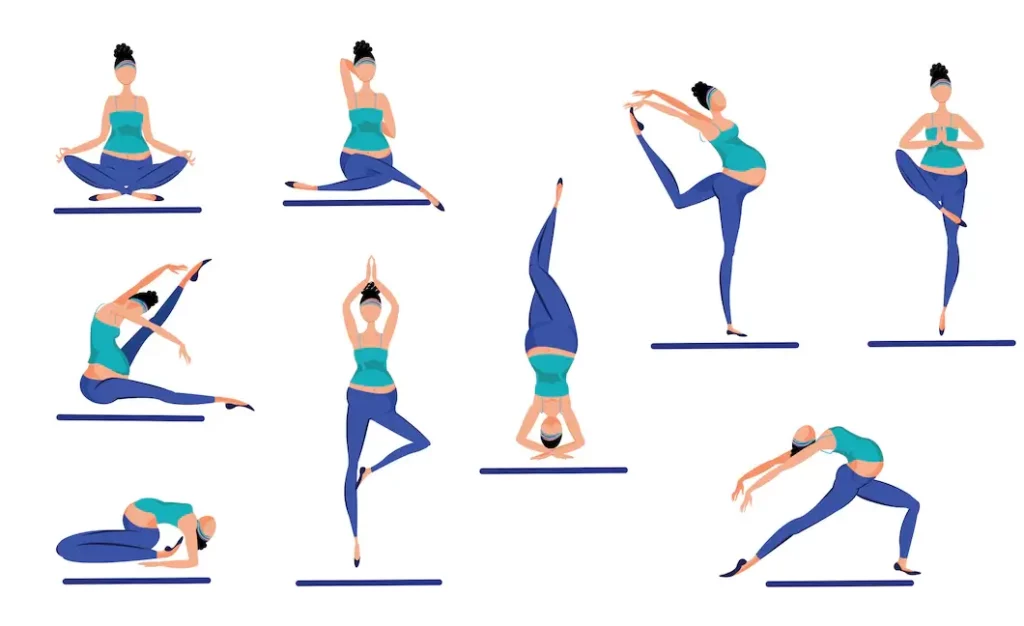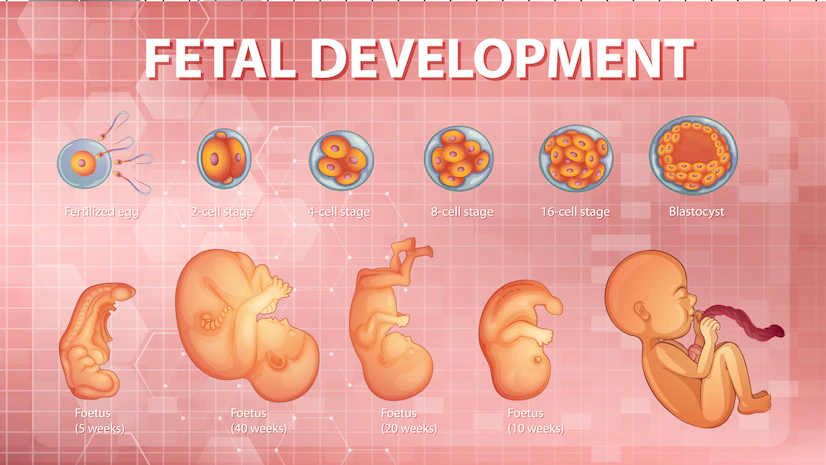We will discover everything about pregnancy exercises in detail through this digital report from Bekoka press.
You’ll don’t ever neglect the excitement (or sheer panic) you felt when such two blue or pink lines appeared. Now that you’re expecting, you’re probably wondering what must shift and what can stay the same.
pregnancy exercises
The great news is Workout is at the top of the goals for the upcoming nine months.
And whether you choose to keep up with your existing exercise regimen or start something new, we’ve covered it for you. Everything you’ll want to know regarding staying in shape all through pregnancy, from cardio and strength coaching to elongating and core workouts, is right here.
The Advantages of Moderate exercise while also Pregnant.
If you only work out to fit into a relatively small pair of pants, you might have to shift your viewpoint (and priorities) now that you are expecting.
pregnancy exercises according to the American Association of Obstetricians and Gynecologists (ACOG), could indeed reduce the risk of:
- premature birth
- Cesarean section
- Excessive weight gain
- Preeclampsia, diabetes mellitus, or hypertensive disorders
- reduced birth weight
- It’s also an excellent way to: stay physically fit.
- lower back pain (hello, growing tummy!
- control sadness and anxiety symptoms
- lessen strain
- Enhance post-birth healing
Why should you exercise while pregnant?

pregnancy exercises can help with backaches, constipation, bloating, and swelling.
- Increase your mood and energy levels.
- Assist you in sleeping better
- Avoid gaining too much weight.
- Muscle tone, power, as well as endurance should all be improved.
- Other potential benefits of a physical activity program for pregnant women include the:
- Preventing diabetes
- Lowered risk of having a C-section due to shorter labor.
Gaining the OK for Pregnancy and Exercise
Ensure you have the OK from your doctor before starting an exercise program. Although workout is probably beneficial to both mother and baby all through childbirth, your physician may advise you not to work out if you are
- Certain types of heart and lung disease
- Preeclampsia is high blood pressure that occurs for the first time while pregnant.
- Cervical issues
- Continual vaginal bleeding in the second or third trimesters
- Placenta issues
Workout may be unsafe all through pregnancy if you are experiencing any of the following complications:
- Prematurity during your pregnancy
- A numerous pregnancy with the possibility of preterm labor
- Cell wall fault occurs prematurely.
- Anemia of severe severity
Preparing for Pregnancy

Most pregnant women should get at least thirty minutes of moderate-intensity workout on most, if not all, days of the week.
Walking is an excellent beginner’s exercise. It offers moderate aerobic heating or cooling with negligible joint stress. Swimming, reduced aerobics, and static cycling are also good options. Resistance training is also acceptable as long as you use light weights.
Recollect to stretch, warm up, and cool it down. Stay hydrated by drinking plenty of fluids and exercising caution to prevent excessive heat.
Strenuous exercise increases oxygen and blood circulation to the muscles while diverting blood from the uterus. Overall, you should be able to communicate with others while also working out.
Cardiovascular exercise during all 3 phases
Walking, swimming, jogging, and fixed cycling are popular cardio-vascular forms of exercise, all during 3 phases.
If your doctor has advised you otherwise, obey the U.S. Department of Health and Human Assistance Vigorous Exercise Guidance for Americans, which suggests at least 150 minutes of cardiovascular exercise per week.
Suppose you’re accustomed to performing high-intensity workouts like running or have a good fitness level. In that case, the ACOG asserts you could continue such operations throughout pregnancy — with your doctor’s permission, of class.
Exercises to do during the first trimester of pregnancy.
The first 3 months of pregnancy may be an emotional roller coaster. From elation and sheer joy to worry, feel worried, or even fear as you realise you’re willing to take responsibility for nurturing, going to grow, and maintaining this small soon-to-be human wellness safe and healthy.
Physiotherapist Heather Jeffcoat, DPT, asserts you could indeed proceed with your regular exercise routine in the first month of pregnancy as long you’re not a high-risk pregnancy.
A very well prenatal fitness regimen should include at least 150 minutes of cardiovascular exercise per week and 2 to 3 days of exercises for strength training that aim the major muscle groups.
Exercises to do during the first trimester of pregnancy
The first three months of pregnancy may be an emotional roller coaster. From delight and sheer joy to worry, feel worried, or even fear as you realize you’re willing to take responsibility for nurturing, going to grow, and maintaining this small soon-to-be human wellness safe and healthy.
Physiotherapist Heather Jeffcoat, DPT, asserts you could indeed proceed with your regular exercise routine in the first month of pregnancy as long you’re not a high-risk pregnancy.
A very well prenatal fitness regimen should include at least 150 minutes of cardiovascular exercise per week and 2 to 3 days of exercises for strength training that aim at the major muscle groups.
If you work at a high altitude, be aware of the warning signs and symptomatology of motion sickness, including headache, tiredness, and nausea. If you encounter sinus headache symptoms, return to a lower elevation as quickly as possible and seek medical care.
Maintaining motivation
Exercise plans that include activities you enjoy and fit into your everyday regimen are more likely to be taken. Think about the following simple suggestions:
Begin small. And get in form; you are not required to enroll in a gym or buy more expensive workout gear. Get trying to move. Try going for a daily walk around your neighborhood or walking around the boundary of the supermarket a few times.
Pay attention to your body
Exercise is good, but so is keeping an eye out for warning signs of a problem. If you have: Start exercising and consult your physician; if you have:
Bleeding in the cervix
Dizziness
Headache
Enhanced breathing shortness before beginning exercise
Chest ache
A wise decision
Workout regularly can help you deal with the physiological symptoms of pregnancy and construct endurance for the upcoming challenges. If you have not been getting regular exercise, utilize pregnancy as an excuse to start.
References


